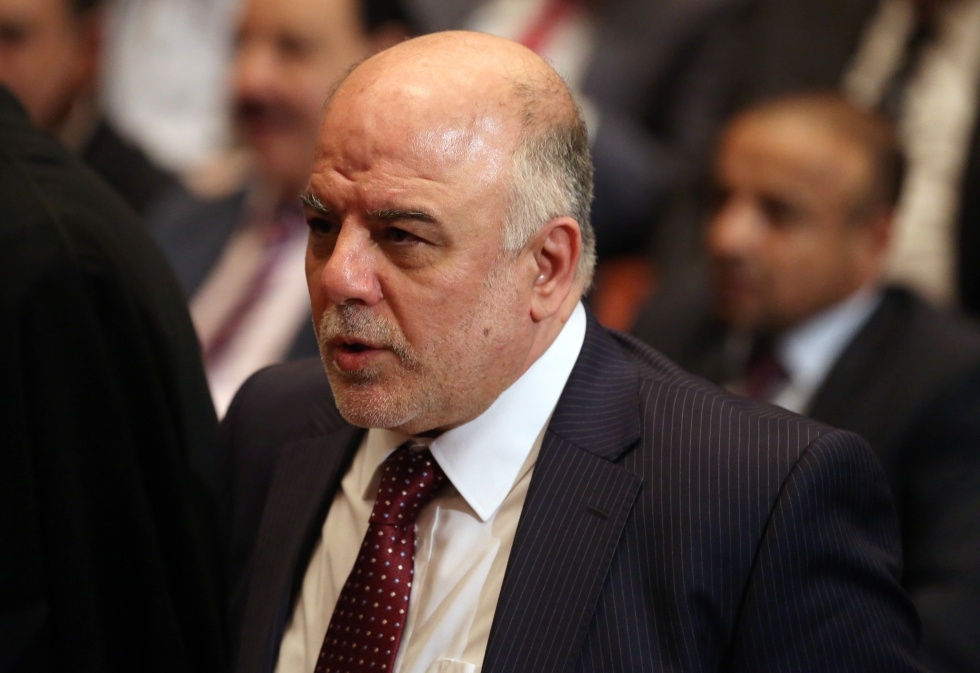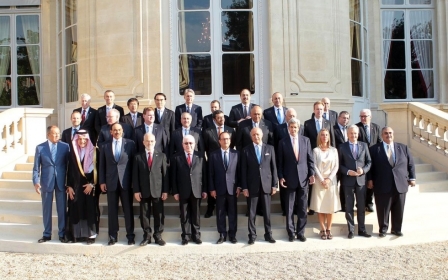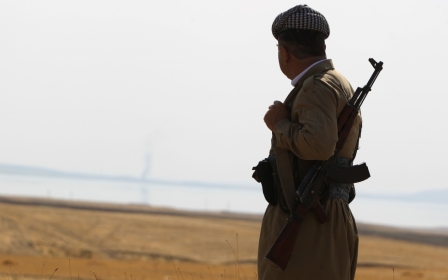Iraqi parliament rejects Abadi's nominations for top ministerial posts

Iraq’s parliament rejected on Tuesday two nominees for the crucial positions of interior minister and defence minister, as newly appointed Iraqi premier Haider al-Abadi tried to complete the formation of a new and inclusive government.
Abadi submitted to parliament the names of Sunni MP Jaber al-Jabber as defence minister and Shiite MP Riyad Gharib as interior minister but both of which were rejected.
Prior to the debate on Tuesday, Hussein al-Maliki and Hamad Saadoun, two MPs from Abadi’s State of Law bloc, told AP the selection of Gharib had “been met with some contention,” mostly from within the Shiite Badr Brigade.
Iraqi analysts said the nominations were made to meet a deadline to fill the ministerial posts, which have been vacant for around four years because parliament repeatedly failed to agree who would fill the the posts.
After striking a hard fought deal to approve the new unity government on 9 September, Abadi promised to name the remaining ministers within a week.
“These candidates were nominated for political reasons, they weren’t proposed for their capabilities – it’s a problem that has plagued Iraq for a long time,” said Sajad Jiyad, a London-based Iraqi analyst and researcher. “The country has people capable for these two ministries but the issue is, either they are not high profile enough, or they are not linked to any of the major parties.
“People that are fit for the positions do not have the political kudos, influence and patronage to be able to gain those jobs,” he added.
Jiyad said Jaberi and Gharib were not serious nominations by Abadi, but that they were less polarising than other choices - even in light of the misgivings about their lack of credentials.
“Jaber Jaberi definitely does not have any relevant experience to warrant him running the Defence Ministry. His brother has made comments that indicate support for [Islamic State] – this, along with his lack of qualifications, should be a key concern about his nomination,” he said.
“Riad Gharib is an even worse nomination. He has not held any position of note to qualify him for handling such a big portfolio as the Interior Ministry, which is probably Iraq’s biggest.
“Gharib served on the provincial council in Karbala but does not have sufficient experience for this job and has ties to Islamist parties – this prompts worries about what his agenda is. Parliament did the right thing in rejecting these nominations.”
Tuesday’s rejection of the ministerial nominations comes a day after dozens of Sunni tribal leaders met at a hotel in Baghdad to discuss taking action against the rising force of Islamic State (IS).
Former Prime Minister Nouri al-Maliki attended the meeting designed to galvanise Iraqi support for a US-led coalition against the IS, with tribal leaders seemingly agreed on the grave threat posed by the militant group.
“The coming hours will be critical for Dhuluiyah,” Sheikh Riyadh Abdallah al-Juburi, a Sunni tribal leader from south Dhuluiyah – which has long fought against the IS – told AFP.
“If we don’t continue to hold our ground, the consequences would be disastrous…but defeating [Islamic State] in Dhuluiyah would be a turning point for the whole of Iraq.”
The US began bombing IS positions in Iraq in early August and has since said it plans to expand its aerial campaign into Syria.
This month, Washington announced plans to build a global coalition against IS, with several Sunni Arab states from the region reportedly pledging their support.
Middle East Eye propose une couverture et une analyse indépendantes et incomparables du Moyen-Orient, de l’Afrique du Nord et d’autres régions du monde. Pour en savoir plus sur la reprise de ce contenu et les frais qui s’appliquent, veuillez remplir ce formulaire [en anglais]. Pour en savoir plus sur MEE, cliquez ici [en anglais].




